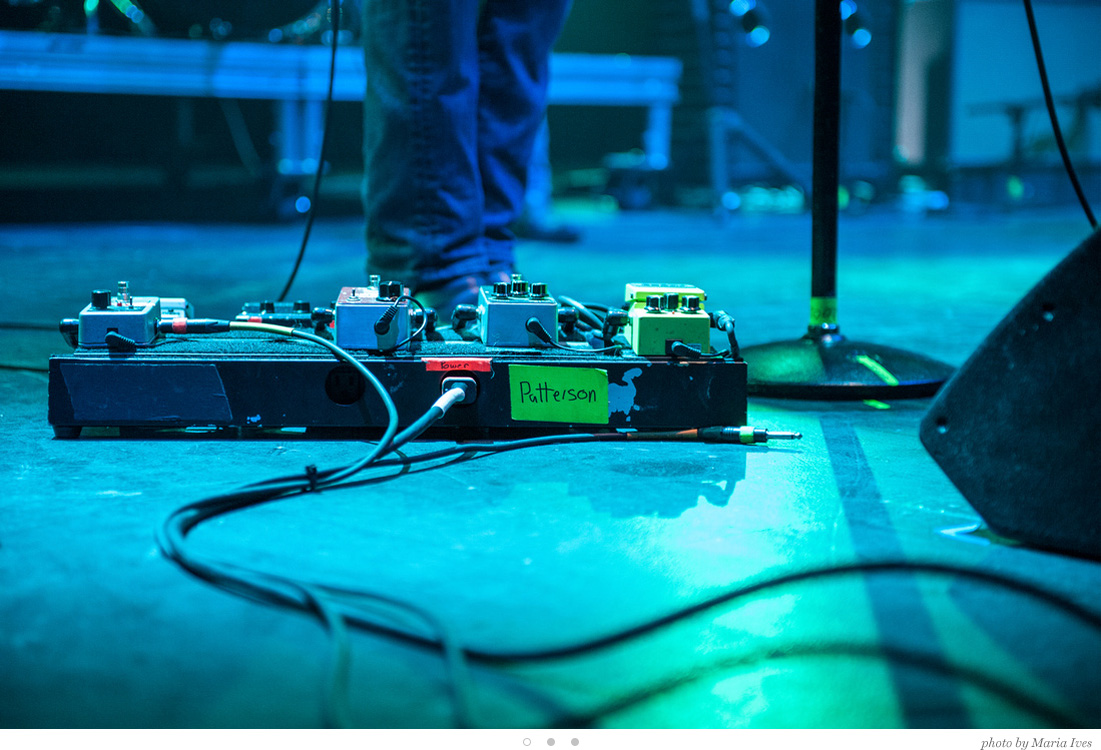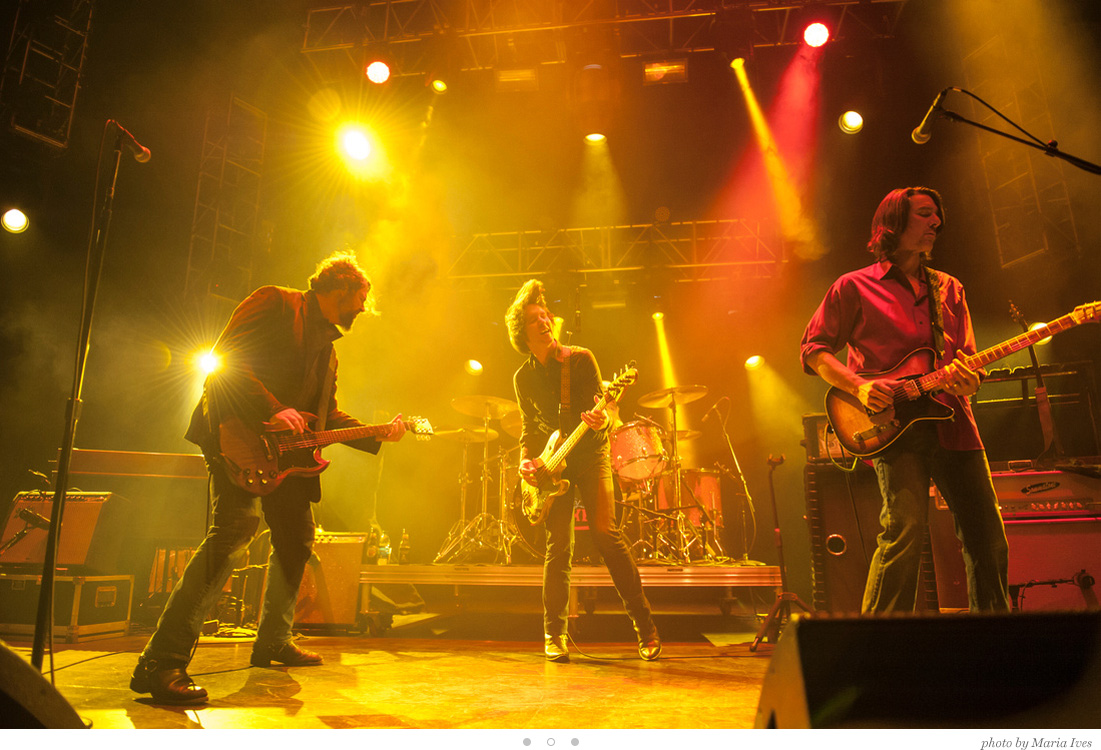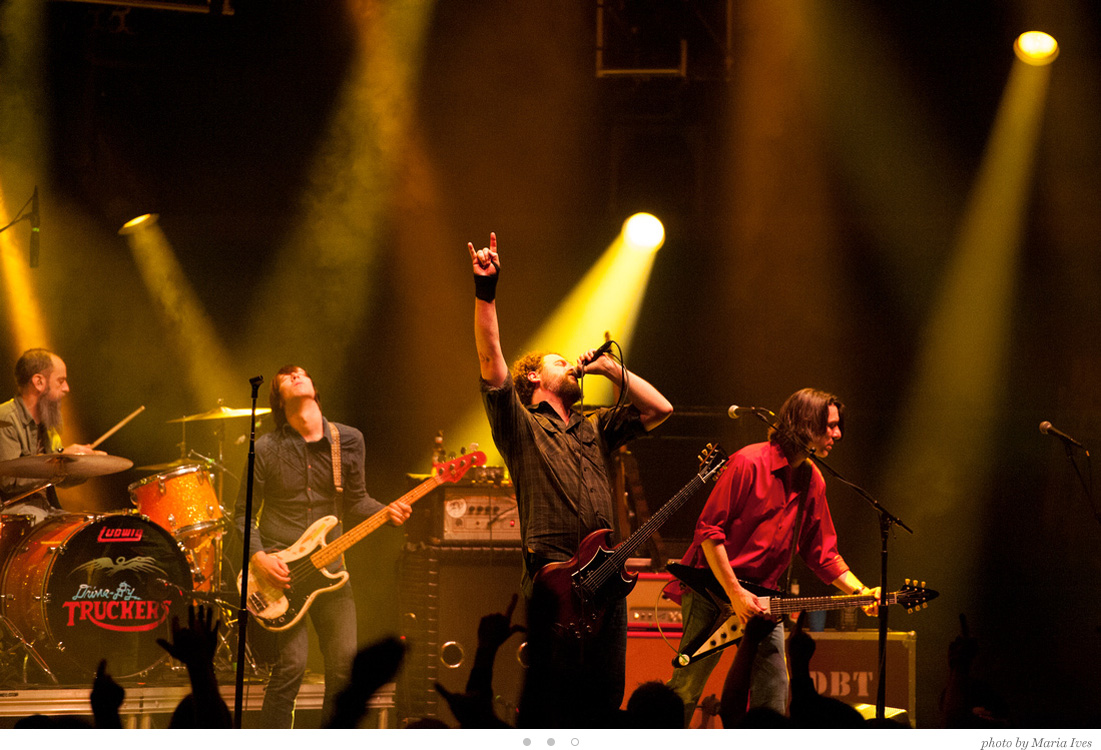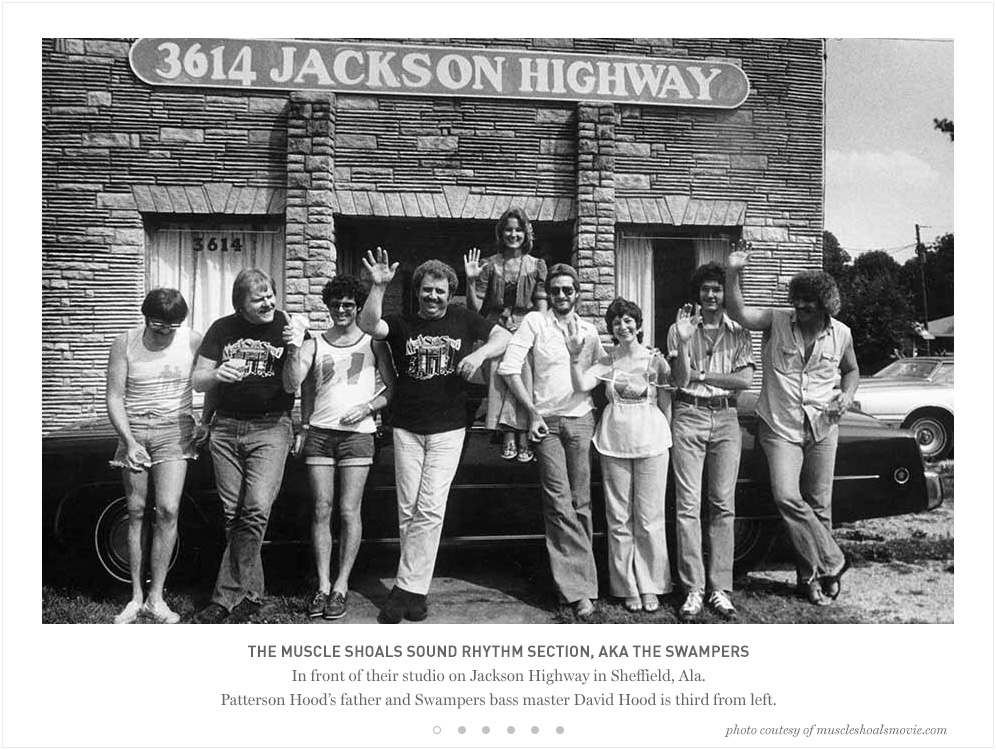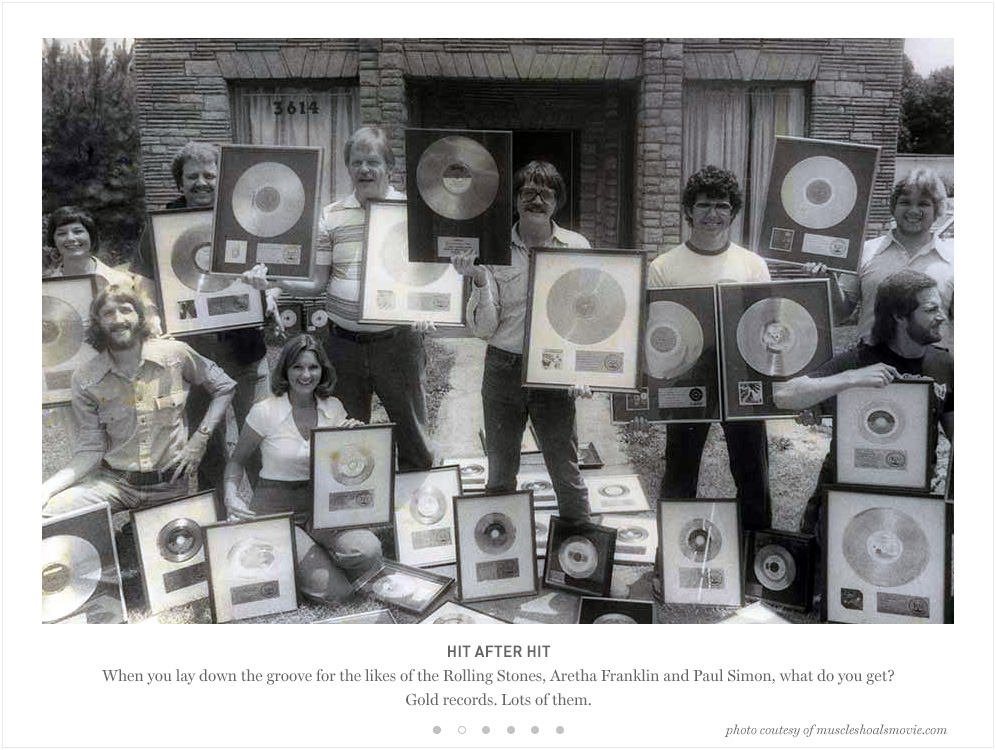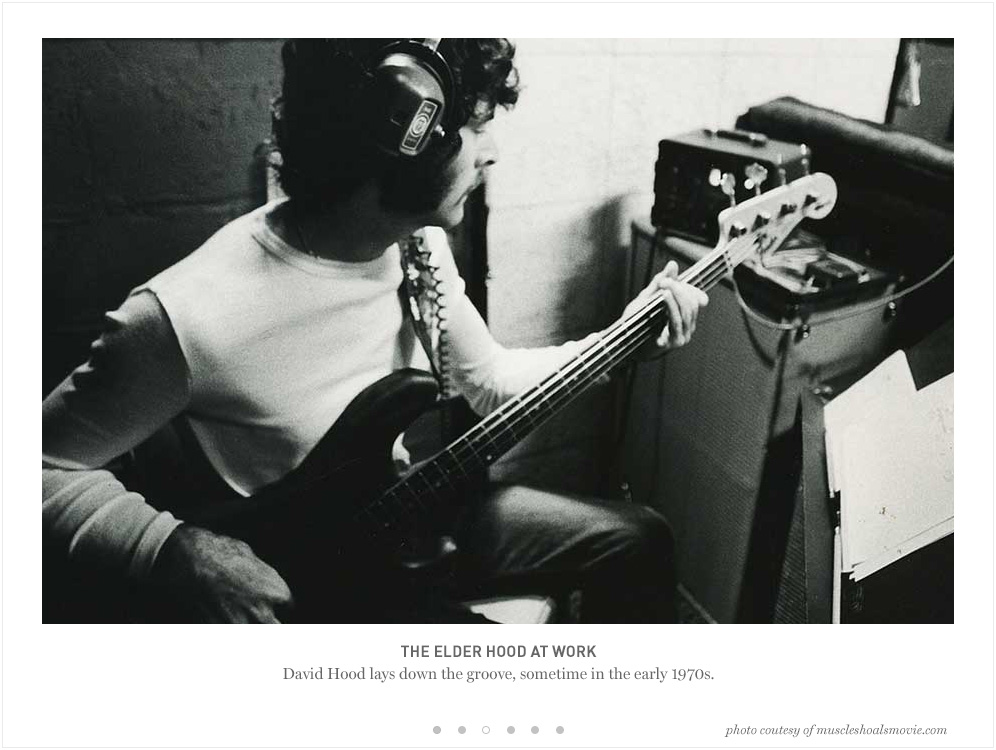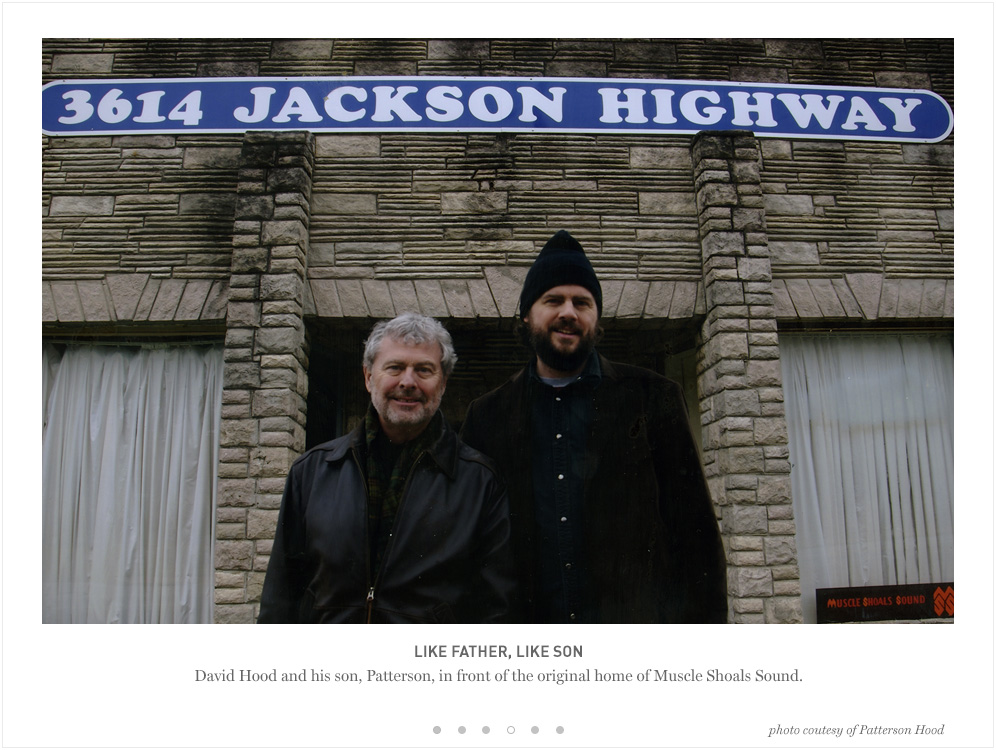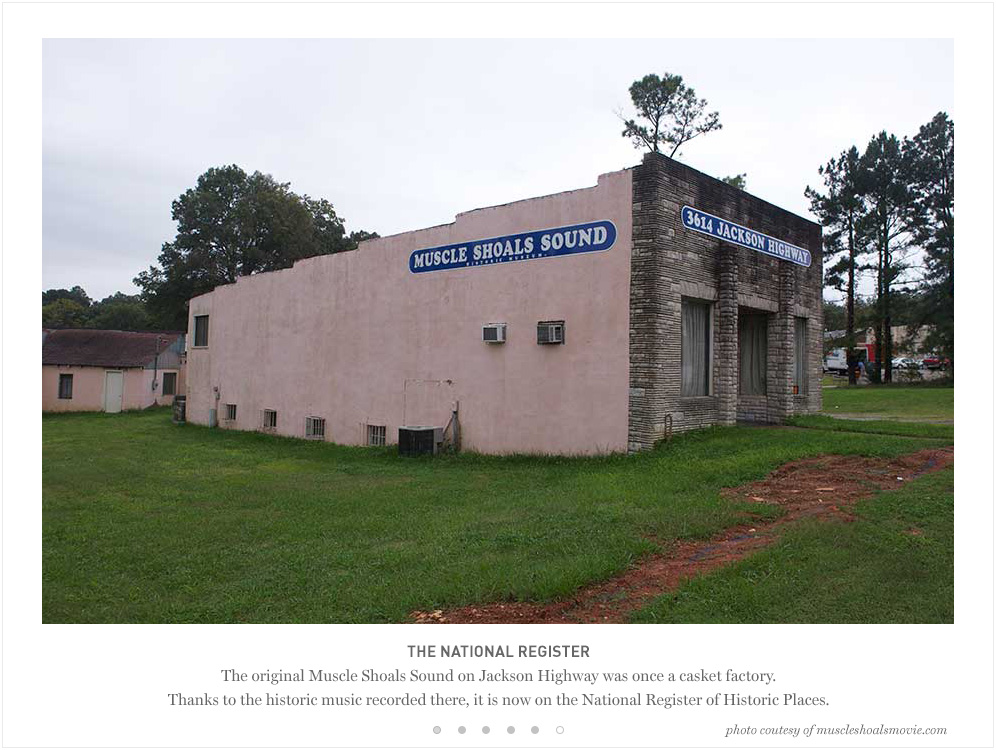A LONG TIME AGO, I WROTE THIS THING ABOUT GROWING UP IN THE SOUTH IN THE ’70s AND ALL THE BAGGAGE AND COMPLEXITIES THAT ACCOMPANIED SUCH. IT WAS PART OF A LARGER WORK THAT CULMINATED WITH AN ALBUM THAT MY BAND DRIVE-BY TRUCKERS MADE. WE CALLED IT "SOUTHERN ROCK OPERA."
I spent the better part of five years writing it, a year attempting to record and release it, and two years touring all over the world promoting it. As a band, that work defined us, for better or for worse. We are all fiercely proud of “SRO” for what it is, was and did. But we've also spent a good part of the 12 years since it was first released attempting to move past it.
A couple of months ago, my friend Chuck called and asked me to write this piece for his new site, The Bitter Southerner. My first inclination was to run and hide. I wasn't sure I wanted to get back into all of that. But I got what Chuck was trying to do, and so I agreed.
The centerpiece of my writing on that album (my partner Mike Cooley wrote a fair share, including the two best songs, but I digress) was a spoken-word piece called "The Three Great Alabama Icons," which talked about George Wallace, Bear Bryant and Ronnie Van Zant. (Ronnie wasn't from Alabama, but thanks to “Sweet Home Alabama,” he was greatly beloved by the folks I grew up around.) In my song, I discussed the dualities of being from a region that is known for great music and literature and art and something called “Southern hospitality,” but is also known for Jim Crow laws, slavery, racism and the Ku Klux Klan. I talked about being fiercely proud of the good parts of my heritage and mortified and ashamed of the bad parts, the ones that too often define how other people perceive us.
The narrator of the piece claimed to have lived most of his life down South, running away from the things he was ashamed of, only to move up North at some point and to miss the other parts of his upbringing. In truth, I still have never lived above the Mason-Dixon Line. I never claimed “SRO” to be my true story, but a lot of my story is in there. It was an intentionally naive piece of work, partly because a large part of it was about the main character's teenage years and all of the misguided pitfalls that come with that period of life. I wrote a large part of it on the road while touring behind the three previous albums from my band. Some of it was written from a perspective of naiveté because I was fast learning new things about the world around me every day.
In the years since, we have toured all over the world and probably spent more time in other regions than in our own neck of the woods. I've found that people really aren't all that different, wherever they are from. Certainly some towns are cooler or more fun or more beautiful than others. Some towns do seem to give off a vibe of one type or another, but basically people are people. I have fallen in love with some cities, not so much some others. I have received random acts of kindness on a sidewalk in New York City. I’ve had a beloved guitar stolen (and then returned) in Columbia, Mo. I've made lifelong friends in Holland, London, L.A., San Francisco, Seattle, two Portlands (Oregon and Maine), Chicago, Texas and Boston. I get tired of the constant travel and missing my family, but I do love my job and I love visiting my friends from all over creation.
It is, overall, a pretty kickass life.
As for my love/hate/love relationship with my home region, it's still an ongoing process. I have lived in Athens, Ga., for 19 years. It's a beautiful town with warm and creative people, a super-sized music and arts scene and very liberal politics. It's a great place for my kids to grow up and a pretty wonderful place to come home to after a long tour. It's also a nice liberal enclave, providing a little bit of shelter from the right-wing rhetoric that is so prevalent down here.
In movies and TV, there is one Southern accent that is used interchangeably in any setting, whether it's by an ignorant asshole or a homespun sage whose fatherly wisdom keeps Mayberry peaceful. But in actuality, every region of the South has a distinct and different version. To my ears, the Georgia Drawl is a more pleasing sound than the Alabama Twang I grew up hearing (and possessing). In Athens, the drawl often delivers progressive thought and idealistic visions of how we could better ourselves (if Atlanta's suburbs would just stop encroaching). We have great bars and a couple of award-winning, world-class restaurants where I would be proud to take any visitor.
But in the occasional event that I turn my TV on and actually watch the news, I remain mortified that the most idiotic people in Washington usually seem to have one of our Southern accents. In fact, thanks to Republican redistricting, my beloved Athens is represented in Congress by the worst of the worst. Rep. Paul Broun never met a stupid statement he didn't embrace. He's a “birther,” and even though he was once a practicing medical doctor, he calls evolution “lies from the pit of hell.” I hear he's going to run for the Senate. He'll probably win. Southerners love electing dumbasses, and then we complain when comedians take the “easy way” and make fun of us for being backwoods and stupid.
If the Mason-Dixon Line provided the cultural and political dividing line in the 19th and most of the 20th century, now the divisions are more between rural and urban, blue state and red state. The political divide is as fierce as at any time since the abolition of slavery, and both sides are becoming less inclined to compromise. What all of this means to Southerners, I'm not sure. A large majority of Southerners fall on the red state side of most issues, but there is an ever growing faction of people who feel very strongly opposed to that, not only in big Atlanta or liberal little Athens, but also in more rural areas. I was amazed and very pleased to see the number of Obama signs I saw in my North Alabama birthplace last fall.
I recently had the pleasure of revisiting my old hometown, Florence, Ala. I lived there for 28 turbulent and often troubled years. My relationship with my hometown was as complex as it could possibly be and probably shaped me in ways I'm only now becoming mature enough to fully realize. Florence is a small town of roughly 60,000, nestled on the northern bank (or shoal) of the beautiful (and somewhat polluted) Tennessee River, which nearly a hundred years ago became the site of the first dam built in what became known as the Tennessee Valley Authority project. Wilson Dam, completed in 1921, turned a previously unnavigable river into an artery for shipping. And thanks to FDR, Wilson Dam provided hydroelectric power that brought electricity to one of the poorest regions of the country.
On the south side of the river lie three towns, geographically connected, but politically separate from each other. Sheffield, the biggest of the three and birthplace of my father, was a blue-collar community that often looked quite bleak by the time of my youth. Tuscumbia, a little further to the south and landlocked away from the river, is a beautiful small southern town that looks ripe for use as a set for a film about the Old South. Best known as the birthplace to Helen Keller, Tuscumbia is still where young drama students perform “The Miracle Worker” every summer by the well at Ivy Green, where Helen spoke her first words. Muscle Shoals is the more infamous and smallest of the cities. It was the original home of TVA and in the ’60s and ’70s became famous as "the hit recording capital of the world" due to the unbelievable number of classic records recorded there in a handful of humble recording studios.
I grew up as a living part of the legacy of Muscle Shoals music. My father, David Hood, is a bass player and was part of the infamous Muscle Shoals Sound Rhythm Section that played on records by Aretha Franklin, Percy Sledge, Wilson Pickett, Bobby Womack, Bob Seger, Paul Simon, Simon and Garfunkel, Willie Nelson, Rod Stewart and tons more. In 1969, the Rolling Stones came and recorded "Brown Sugar" and "Wild Horses" in my Dad's tiny studio, which was once the site of a casket factory. Their visit was kept a secret from most of the locals, and the world's biggest rock and roll band came, recorded and left (headed for infamy at Altamont, no less) without the conservative townsfolk even knowing they had been there.
A big part of my viewpoint in "The Three Great Alabama Icons" stems from my father, a white southerner born during World War II who made his living backing up African-American R&B legends in my Bible Belt hometown during the height of the civil rights struggle and the horrific racist events of the '60s. Church bombings, beatings of peaceful marchers and turning police dogs on children in places like Selma and Birmingham. George Wallace on TV all over the world for standing in the doorways of schools and blocking progress. All this was happening while my father played bass on the Staple Singers' "I'll Take You There" and Etta James' "Tell Mama." Wallace died while I was writing “SRO,” and I wrote a song about him that was set in hell, where the Devil is welcoming him and telling him why he's there. Wallace's grandson, George Wallace III, is a huge DBT fan and thanked me for writing a fair assessment of his grandfather. Such is the duality of the Southern Thing.
There, I said it.
I grew up fiercely proud of my hometown and my father and the beautiful music they made. I grew up ashamed of politicians like Wallace and some of the later governors who were actually worse, but at least no one outside of Alabama had to know much about them. I grew up loving music and politics. My beloved punk rock showed me a way to blend both things and rebel against the more oppressive forces of my hometown's religious conservative mores. Unfortunately, my coming of age coincided with the Muscle Shoals R&B scene ending, or at least losing its worldwide relevance. I got to the door just as it was slamming shut, and my punk rock leanings did nothing to endear me to my father's peers and associates, most of whom thought I was a spoiled, ungrateful, disrespectful prick. (I plead about 50 percent guilty on that, but I'll save that for a later essay).
I left my hometown at 27, in 1991, after spending six years fronting a very unsuccessful band that was locally more infamous than famous. We had been "banned for life" from the two local music festivals the Muscle Shoals area hosts every year: the Helen Keller Festival and the W.C. Handy Music Festival. I lived in Memphis for about 15 minutes and spent a couple of years in Auburn before settling in Athens a week after my 30th birthday. I felt like I had died and gone to heaven. Suddenly, I was living in a town with a thriving music scene that put its emphasis on being original and a little outside the mainstream. I thrived and began Drive-By Truckers and have had an amazing adventure and a wonderful life.
Meanwhile, since I've been gone, my hometown has had an amazing transformation. It happened very slowly, and I'm sure that some of the roots were sown before I left, but it's only been in the last five years that you can really see, hear and feel the place beginning to blossom. I visit home, and there are bands playing all over. Some of them are really fucking great. A handful of them are making music that is being loved the world over. Two of today’s most influential and successful clothing designers live and work in Florence. When I grew up, Florence was the seat of a “dry county,” but now, they even have Sunday sales. Riverkeeper has started working to clean up the Tennessee River with some success. There seems to be a renewed pride and local swagger. Two years ago, DBT was even invited to play the Handy Festival (they said it would never happen), and we sold out the big auditorium where my partner Mike Cooley and I had once opened for the likes of Night Ranger and the Producers (the band, not the play). When I got into town for that festival, I saw a band play in a record store to about 25 people. That band was Alabama Shakes, from the small town of Athens, Ala., about 30 miles from home. They have since earned a gold record and played the Grammys and “Saturday Night Live.” They are one of the best bands on the planet right now, and people back home are rightly proud of them.
Alabama Chanin and Billy Reid are designing clothes and winning international fashion awards from names like Vogue and GQ and Esquire. Billy has opened his anchor store right on Court Street in downtown Florence, leading what is becoming a massive revitalization of our beautiful main street and local economy. Billy has recently designed clothes for people of local prominence to wear at the Oscars and the Grammys. When I win my Oscar, I'll certainly be wearing some Billy Reid.
Speaking of acclaimed films, a new documentary film about Muscle Shoals and its incredible musical history has just been released. My Dad has attended screenings at Sundance and at SXSW in Austin, and the film was just picked up by a distributor (a good one at that). Watch out for “Muscle Shoals.”
If chefs are the new rock stars (and I think they are), my hometown is still lacking for most culinary options. We do have a sushi restaurant downtown (I never thought I'd live to see that), but most of our best foods are barbecued. Not true, however, in many towns across the southland. Thanks to brilliant chefs like Hugh Acheson, whose Five and Ten and The National are doing my adopted home proud, as well as Sean Brock, whose Husk in downtown Charleston is a James Beard Award-winning favorite. He’s opening a second location in Nashville, where it can stand up alongside City House, which is outstanding.
The paradigm is shifting in the South. There is plenty to dislike or feel bothered by, but there is also more to be excited about down here than ever before. Several of the midsized cities considered among the best places to live in the country are Southern. Louisville, Ky., boasts great art and food and a diverse music scene (anchored by My Morning Jacket, certainly one of the most vital bands of the last two decades). Birmingham, Ala., is in a bankrupt county and has more than its shares of issues, but it also boasts incredible restaurants and art and music and some beautiful old architecture.
Possibly the greatest success story of the newer south is what’s happening in Nashville, Tenn. Nashville has truly become the world-class Music City it always said it was. It’s home to Jack White and his Third Man empire, Dan Auerbach and Black Keys and their new studio, the Ryman Auditorium and tons of newer venues, and literally hundreds of up-and-coming bands. Great restaurants, a major sports franchise and fairly progressive (for the region) city government have made Nashville a great travel destination and an especially livable metropolis. The New York Times and many others have been saying this for a couple of years now, and my recent times there totally back it all up.
As Southerners, we still have plenty of work to do and lots more to accomplish, but I can't help but feel positive about the general direction things seem to be taking down here. By our very nature, we will always be a culture with more than its share of dualities, but these complexities also make our part of the country an interesting place, so ripe for the art and literature and music for which we are rightly respected and loved. If we can continue to move forward (however slowly though it sometimes seems) and learn from and incorporate the newer cultures moving into the region, we can truly be the best part of the country to live in and raise a family.
The Side Bar
Through the Lens: With the Drive-By Truckers
Stacie Huckeba takes us front row with Patterson & DBT.
View Gallery
Stars of The New(er) South
We do roll call with some of the south's most influencial taste makers.
View Gallery
Muscle Shoals:
The Trailer
Do not miss the chance to see the full feature, as soon as you can. Until that opportunity arises, this should put you in the groove.
Watch Trailer
Essay by Patterson Hood
Patterson Hood, DBT & Brittany Howard photos (top) by Maria Ives
Muscle Shoals photos via muscleshoalsmovie.com
Photo of David & Patterson Hood courtesy of P. Hood
Through the Lens photo gallery by Stacie Huckeba
You know we like to drink. Thanks to some the South's best barkeeps, we're building a special series of cocktails, custom concoctions for Bitter Southerners like you. Next week, we’ll offer up The Bitter Southerner No. 1, a deep, dark and delicious number from Jerry Slater at Atlanta’s H. Harper Station.
The Bitter Southerner© 2013 all rights reserved
To contact The Bitter Southerner for any reason at all, just connect with us on Facebook.



